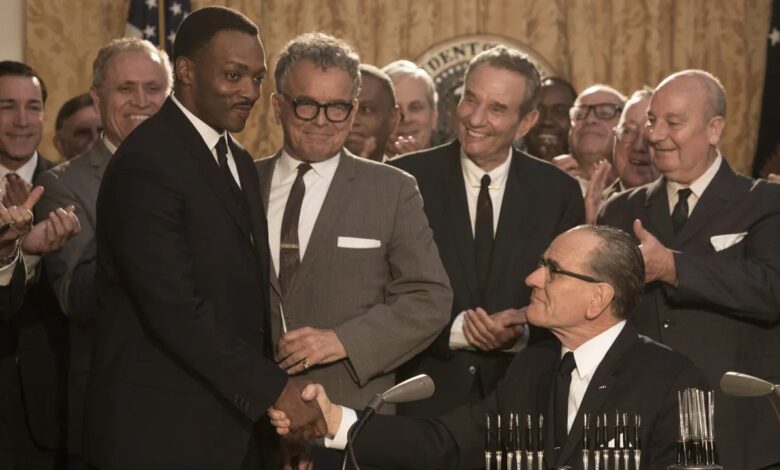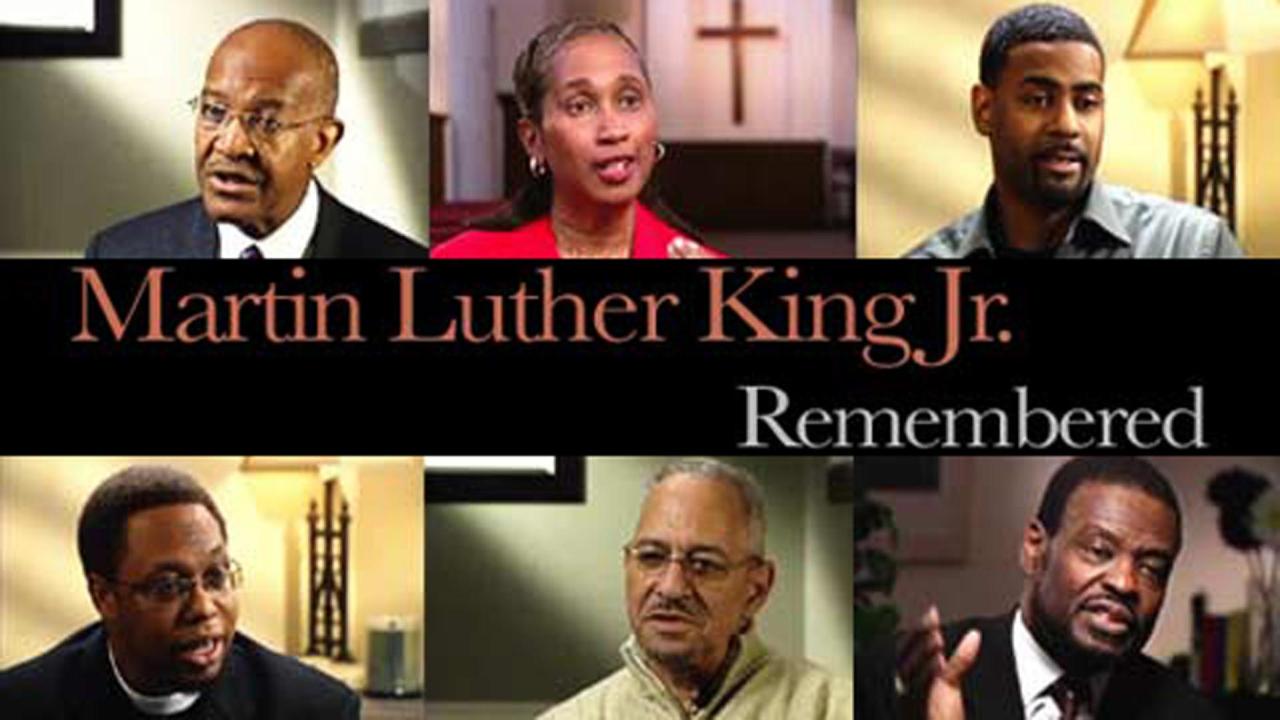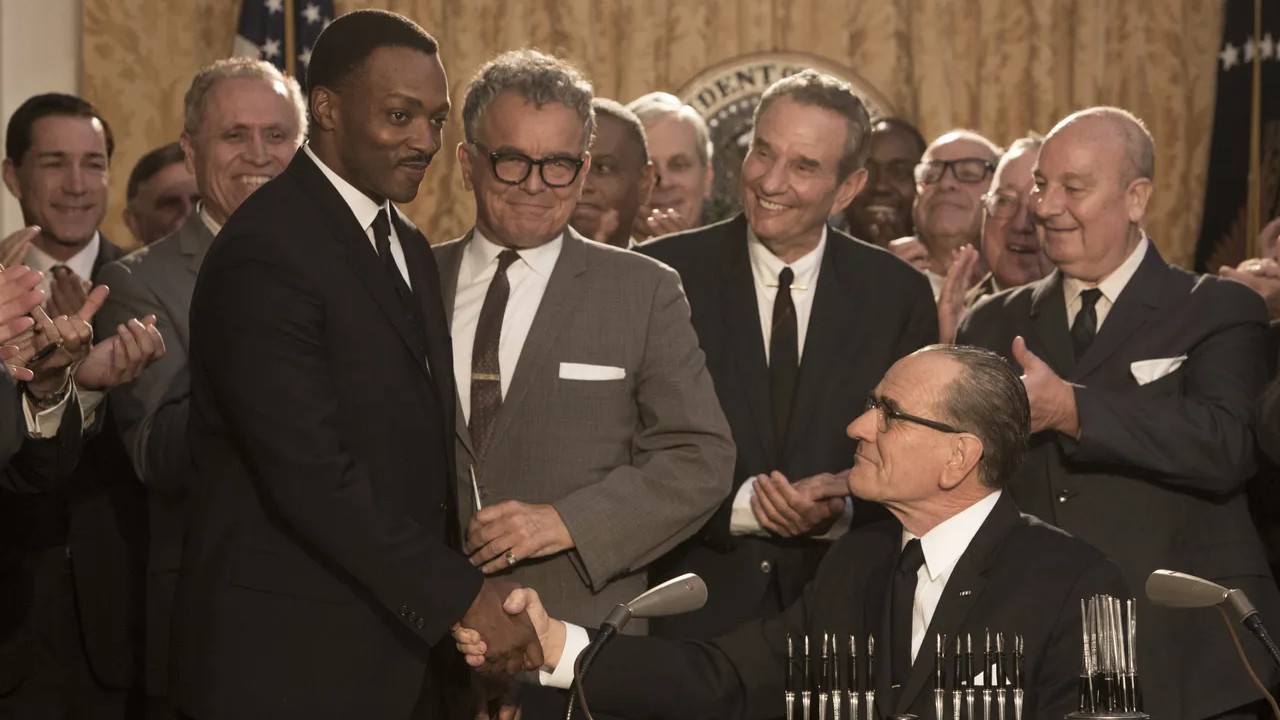
Martin Luther King Jr Day best documentaries to watch offer a powerful way to delve into the life and legacy of a transformative leader. These films, meticulously crafted, explore the Civil Rights Movement through diverse perspectives, bringing history to life. They provide a nuanced understanding of the struggle for equality and justice, and spark conversations about the enduring relevance of Dr.
King’s ideals today.
This exploration delves into critically acclaimed documentaries, providing insightful summaries, comparisons, and analyses. We’ll examine their strengths and weaknesses, explore the historical context, and discover how these films can inspire and educate. The journey into understanding Dr. King and the Civil Rights Movement begins here.
Introduction to Martin Luther King Jr. Day

Martin Luther King Jr. Day, observed annually in the United States, is a significant occasion that honors the life and legacy of a pivotal figure in the American civil rights movement. It serves as a reminder of the struggles faced by African Americans in their pursuit of equality and justice, and the enduring power of nonviolent resistance. This day encourages reflection on the ongoing fight for social justice and equality in contemporary society.
Documentaries provide invaluable insights into the past and present, offering deeper understanding and appreciation for this critical period in American history.Understanding the civil rights movement is crucial to appreciating the significance of Martin Luther King Jr. Day. The movement, a multifaceted struggle for racial equality, encompassed a wide array of strategies and tactics. It was not a singular event, but a sustained period of activism and resistance against systemic racism.
Its impact on American society is profound and continues to resonate today.
Historical Overview of Martin Luther King Jr. Day
Martin Luther King Jr. Day was first observed as a federal holiday in 1986. The movement towards establishing this day was long and arduous, reflecting the sustained efforts of many individuals and organizations advocating for recognition of Dr. King’s contributions. The holiday is a testament to the lasting impact of his leadership and the ongoing struggle for racial justice.
The fight for its recognition showcased the dedication of many activists who pushed for broader understanding of Dr. King’s work.
Significance of the Civil Rights Movement
The civil rights movement fundamentally challenged the legal and social structures of racial segregation and discrimination. This movement aimed to dismantle systemic racism and establish equal rights for all Americans, regardless of race. The movement’s impact extended beyond legal changes, inspiring social and cultural transformations. It brought about significant progress in the fight for equality, but the work continues.
Key Events and Figures
The civil rights movement encompassed numerous significant events and figures. The Montgomery Bus Boycott, led by Dr. King, is a pivotal example of nonviolent resistance. Other critical events include the Freedom Rides, sit-ins, and the March on Washington. Key figures besides Dr.
King include Rosa Parks, Malcolm X, and many others. Their individual contributions, in tandem, contributed to a powerful movement.
- Montgomery Bus Boycott (1955-1956): This pivotal event, sparked by Rosa Parks’ refusal to give up her seat on a bus, demonstrated the power of collective action and nonviolent resistance. It was a crucial turning point in the civil rights movement, highlighting the injustice of segregation and the potential for change through peaceful means.
- Freedom Rides (1961): These integrated bus trips throughout the American South challenged segregation in interstate travel. The rides faced significant resistance and violence, but ultimately helped bring attention to the plight of African Americans in the South.
- March on Washington for Jobs and Freedom (1963): This historic event, culminating in Dr. King’s “I Have a Dream” speech, brought together hundreds of thousands of people to advocate for civil and economic rights. It remains a powerful symbol of unity and hope in the fight for equality.
Core Values and Principles of Dr. King
Dr. King’s leadership was deeply rooted in the principles of nonviolent resistance, equality, and justice. He believed that achieving social change required a commitment to peaceful protest and dialogue. His emphasis on love, empathy, and compassion, as tools for achieving equality, was foundational to his philosophy. His powerful speeches resonated with people of all backgrounds.
Looking for inspiring documentaries to watch on Martin Luther King Jr. Day? There are some truly powerful films out there. While exploring different perspectives on his life and legacy is crucial, it’s also interesting to see how people’s style evolves over time. For example, checking out some of the young images of Celine Dion, available at celine dion young images , provides a fascinating glimpse into a different kind of historical journey.
Ultimately, these documentaries provide valuable context to help us appreciate the struggles and triumphs of our history.
“Darkness cannot drive out darkness; only light can do that. Hate cannot drive out hate; only love can do that.”
Martin Luther King Jr.
Relevance of Documentaries in Learning About the Movement
Documentaries offer a unique opportunity to delve deeper into the civil rights movement. Through visual and audio representations, they can bring historical events to life, offering a richer understanding of the context and motivations behind the struggle. They provide a platform for understanding the complexities of the past, helping us appreciate the efforts and sacrifices of those who fought for equality.
Analyzing Documentaries’ Content: Martin Luther King Jr Day Best Documentaries To Watch
Delving into documentaries about Martin Luther King Jr. offers a powerful opportunity to understand the complexities of the Civil Rights Movement. These films provide different perspectives and interpretations, often highlighting specific aspects of King’s life and work. Analyzing their content allows us to explore the diverse themes, narratives, and strengths/weaknesses present in each film.By critically examining the use of historical footage, interviews, and other visual elements, we can gain a deeper appreciation for the evolution of the movement and King’s role in it.
This exploration will also compare and contrast how different documentaries depict key moments, revealing how these narratives can shape our understanding of the past.
Looking for some inspiring films to watch on Martin Luther King Jr. Day? There are tons of excellent documentaries out there, but some of my personal favorites delve into his life and legacy. While you’re pondering those, consider how you’ll hop to your Easter dinner in bunny ears – it’s a great way to get in the spring spirit! hop to your easter dinner in bunny ears is a fun take on celebrating the season.
Ultimately, documentaries about Dr. King offer a powerful way to learn and reflect on his important contributions.
Themes and Narratives Explored, Martin luther king jr day best documentaries to watch
Documentaries on Martin Luther King Jr. often explore themes of racial injustice, nonviolent resistance, social change, and the struggle for equality. Some films focus on King’s personal journey, highlighting his philosophical development and the challenges he faced. Others concentrate on the broader context of the Civil Rights Movement, examining the political and social forces that shaped the movement’s progress.
Some might emphasize the role of specific individuals or organizations, while others examine the movement’s impact on various communities.
Critical Analysis of Strengths and Weaknesses
Different documentaries possess varying strengths and weaknesses in their portrayal of King and the Civil Rights Movement. Some excel at presenting a comprehensive overview of the movement, while others focus intensely on specific events or aspects. Strengths might include accurate historical detail, compelling narratives, or insightful analysis. Weaknesses could stem from limited scope, biased perspectives, or a lack of critical examination of the complexities of the era.
A good documentary should offer a balanced perspective, acknowledging both the successes and challenges of the movement.
Use of Historical Footage, Interviews, and Visual Elements
The use of historical footage, interviews, and other visual elements is crucial in documentaries about Martin Luther King Jr. Well-selected archival footage can vividly illustrate the realities of segregation and the daily struggles faced by African Americans. Interviews with participants and witnesses can provide invaluable firsthand accounts, offering a richer understanding of the movement’s dynamics. Visual elements, such as music and narration, play a vital role in creating an emotional connection with the viewer and reinforcing the documentary’s message.
Poorly chosen or edited footage, biased interview selection, or inadequate use of visual elements can detract from the documentary’s impact.
Depiction of Key Moments of the Civil Rights Movement
Documentaries vary in their portrayal of key moments in the Civil Rights Movement. Some may emphasize the Montgomery Bus Boycott, while others focus on the March on Washington. Each film’s emphasis will shape how the viewer perceives the significance of these events. A documentary that focuses heavily on the nonviolent tactics used during the movement may offer a contrasting view to one that highlights the use of legal strategies or community organizing.
A comparison of how different films depict these events reveals the diverse perspectives on the movement.
Impact of the Documentary’s Perspective on the Viewer
The perspective presented in a documentary significantly influences the viewer’s understanding of Martin Luther King Jr. and the Civil Rights Movement. A documentary that emphasizes King’s leadership and nonviolent philosophy can inspire viewers to strive for social justice. However, a documentary that focuses solely on the hardships and setbacks can leave the viewer feeling overwhelmed or disheartened. The filmmaker’s perspective, and the choice of material presented, is critical in shaping the overall message.
Viewing and Learning from the Documenteries
Delving deeper into the documentaries offers a powerful opportunity to not only appreciate the historical context but also to apply the lessons learned to contemporary social issues. By understanding the struggles and triumphs of the Civil Rights Movement through these films, we can gain valuable insights into the ongoing fight for equality and justice. This process of reflection and analysis can empower us to engage in thoughtful discussions and take action in the present.
Suggested Viewing Order
A strategic viewing order can enhance the learning experience, allowing viewers to progressively build their understanding of the movement. A chronological approach, starting with documentaries focusing on the early years of the Civil Rights Movement, provides a solid foundation. Following this with documentaries examining specific campaigns or events allows for a more nuanced understanding of the various strategies and challenges faced.
Ultimately, concluding with documentaries focusing on the legacy of the movement and its impact on current events provides a broader perspective.
Effective Utilization for Educational Purposes
Utilizing documentaries for educational purposes requires careful consideration of their content and structure. Educators can incorporate documentaries into classroom discussions by selecting relevant segments and prompting students to analyze specific scenes or interviews. A key aspect of effective utilization is providing context, allowing students to understand the historical and social environment that shaped the movement. Moreover, promoting critical thinking skills through discussion questions can deepen students’ comprehension and foster a deeper understanding of the issues involved.
Discussion Questions for Each Documentary
Careful selection of discussion questions is crucial for encouraging thoughtful engagement. Questions should guide students to analyze the motivations, strategies, and outcomes of different events and campaigns. These questions should promote critical thinking, encourage debate, and foster a nuanced understanding of the complex issues at play. Examples include: What were the key motivations behind the Montgomery Bus Boycott?
How did the media shape public perception of the Civil Rights Movement? How do the events depicted in the documentaries relate to current social justice issues?
Looking for inspiring documentaries to watch on Martin Luther King Jr. Day? Beyond the standard biopics, exploring the fashion world offers a fascinating parallel. For example, Sarah Burton’s innovative vision at Givenchy, as discussed in sarah burton on her givenchy vision , shows a powerful drive for change in a different field. Ultimately, both highlight important figures who shaped their industries and pushed for progress, making them equally compelling to watch on this day of reflection.
Teaching History and Social Justice
Documentaries offer a compelling way to teach students about history and social justice. They provide a visual and often personal account of the struggles faced by activists and ordinary people during the Civil Rights Movement. By experiencing these stories firsthand, students can develop empathy and a deeper understanding of the importance of social justice. Moreover, students can connect the past to the present by identifying parallels between historical events and contemporary issues, thereby developing critical thinking skills.
Applying Documentaries to Classroom Discussions about Current Events
Documentaries can be valuable tools for classroom discussions about current events. Analyzing historical events through the lens of current issues allows students to identify patterns and parallels, and to apply lessons learned from the past to contemporary challenges. By fostering an understanding of historical context, documentaries can provide students with a framework for critical analysis and informed discussion of current events.
For example, examining the tactics used during the Civil Rights Movement can provide insight into strategies for addressing contemporary social inequalities.
Enhancing Learning Experience
Delving deeper into the lives and legacies of historical figures like Martin Luther King Jr. through documentaries provides a powerful opportunity for personal growth and understanding. This experience extends beyond passive viewing; it encourages critical thinking, empathy, and a deeper connection with the past, present, and future. Actively engaging with the material and connecting with others who are also reflecting on these issues makes the learning process even more enriching.
Connecting with Other Viewers
Engaging with others who have watched the documentaries is crucial for expanding perspectives and fostering a deeper understanding of the complex issues raised. Online forums, social media groups, or even in-person discussions with friends and family can provide a platform for sharing insights, challenging assumptions, and gaining different viewpoints. These discussions can spark critical analysis and help solidify the lessons learned.
By sharing personal reflections and engaging in thoughtful dialogue, viewers can create a supportive community dedicated to social justice and progress.
Utilizing the Films for Personal Reflection
The documentaries offer a unique opportunity for introspection and self-assessment. Viewers can reflect on their own biases and assumptions, considering how they might impact their understanding of historical events and contemporary social issues. This self-reflection allows for a more profound personal growth experience, helping viewers to develop a stronger sense of empathy and a commitment to creating a more just world.
Identifying personal connections to the issues presented in the documentaries is a vital step in internalizing the lessons.
Connecting Documentaries to Contemporary Social Issues
The struggles and triumphs depicted in the documentaries are not isolated historical events. Many of the issues faced by the civil rights movement, such as racial injustice, economic inequality, and political disenfranchisement, remain relevant today. By connecting the past to the present, viewers can gain a deeper understanding of the historical context of contemporary social problems. This analysis can empower viewers to become more active participants in addressing these ongoing challenges.
The documentaries can serve as a catalyst for understanding the enduring impact of systemic racism and inequality.
Activities for Enhanced Learning
Engaging in activities that go beyond passive viewing enhances the learning process. These activities encourage critical thinking and promote deeper understanding of the themes explored in the documentaries.
| Activity Type | Description | Educational Benefit |
|---|---|---|
| Journaling | Record personal reflections, thoughts, and feelings about the documentaries. Explore connections between the historical events and contemporary issues. | Develop critical thinking skills, identify personal biases, and foster empathy. |
| Group Discussions | Engage in discussions with peers, friends, or family about the documentaries. Share perspectives, challenge assumptions, and explore different interpretations of the material. | Develop communication skills, expand perspectives, and gain new insights from diverse viewpoints. |
| Research Projects | Investigate specific aspects of the civil rights movement, researching individual activists, key events, or related social issues. | Deepen knowledge, develop research skills, and strengthen understanding of historical context. |
| Community Action | Identify contemporary social issues related to the documentaries and consider ways to contribute to their resolution. | Develop a sense of social responsibility, foster action-oriented engagement, and become an active agent of change. |
Closing Summary

In conclusion, documentaries about Martin Luther King Jr. and the Civil Rights Movement offer a profound way to learn and reflect. By engaging with these films, we gain a deeper appreciation for the struggles, triumphs, and enduring impact of this pivotal era. We encourage you to watch, discuss, and learn from these powerful stories that continue to resonate today.

